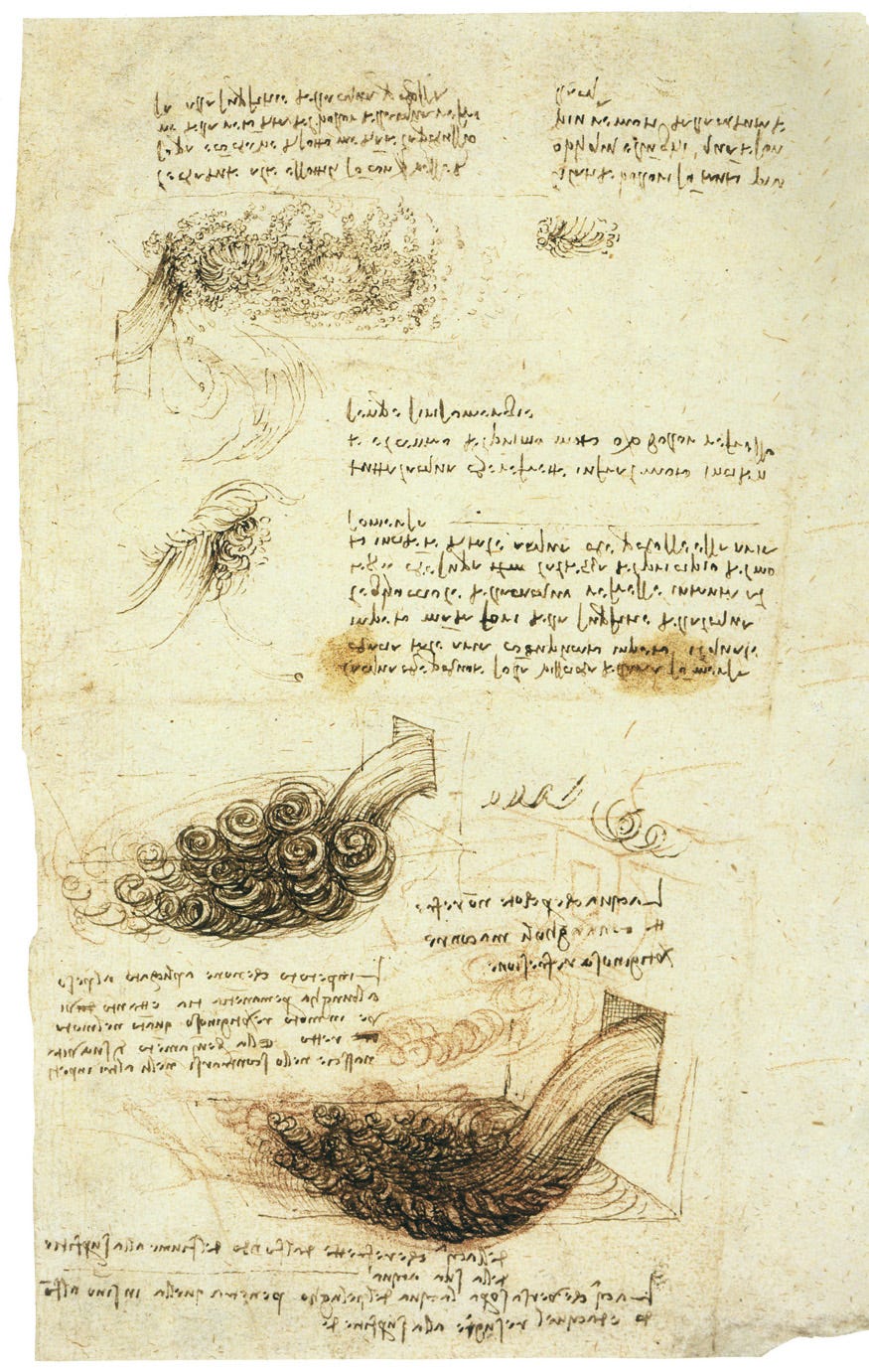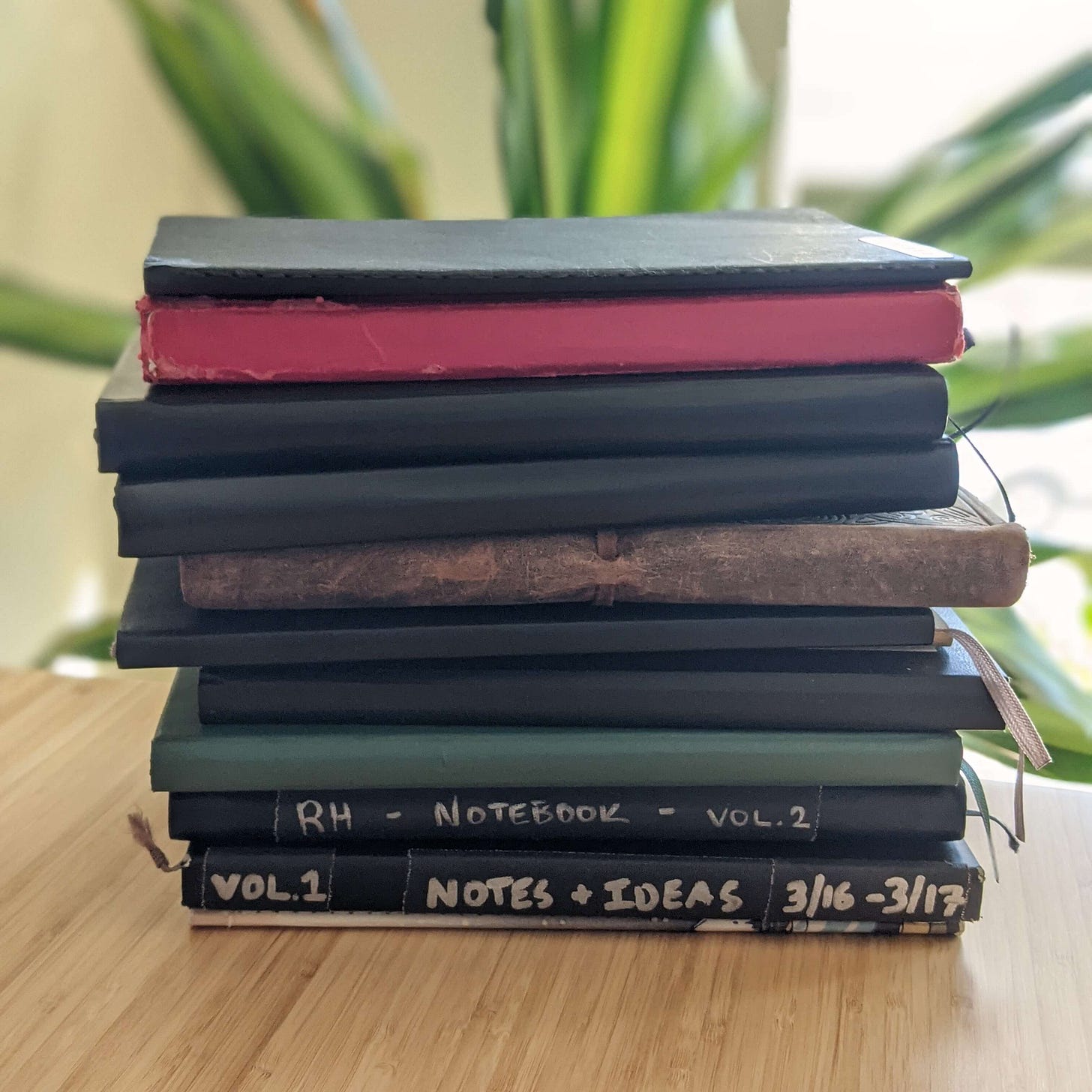Mental Windshield Wipers
How the timeless act of journaling can have a life-changing effect.
Keep a notebook. Travel with it, eat with it, sleep with it. Slap into it every stray thought that flutters up into your brain. Cheap paper is less perishable than gray matter. And lead pencil markings endure longer than memory. —Jack London
When Leonardo da Vinci passed away at the age of 67, he left behind over 20,000 pages of notes and sketches. For most of his life, he carried around a journal as a tool to document and explore numerous subjects. And Leonardo’s not alone. Many others, such as Steve Jobs, Andy Warhol, Marie Curie, Mark Twain, Thomas Edison, Oprah, Albert Einstein, and Ben Franklin, all found benefits from regularly journaling.

Part of what makes this simple act so effective is that it provides a way to have an inward dialogue with ourselves. We can explore thoughts, record beautiful moments, complain, convey feelings, and note random ideas. Transferring what is in our head to paper can even be restorative.
Tim Ferriss describes journaling as capturing your worries and concerns on paper so you can carry on with your day. It allows you to begin the day seeing things clearly without worries, “bounc(ing) around all day like a bullet ricocheting inside your skull.”
-Julia Cameron, The Artist’s Way Morning Pages, page viiiOnce we get those muddy, maddening, confusing thoughts on the page, we face our day with clearer eyes.

I’ve been journaling on and off for about 20 years now. Whenever I felt overwhelmed or uncertain about things, I used journaling as a way to collect my thoughts. And taking from Leonardo’s example, I also used journaling to spark ideas for my creative work.
If you are looking to start a journaling habit, here are some things I’ve learned over the years to get the most out of the process:
There shouldn’t be pressure
Journaling shouldn’t feel like a chore but a time to look forward to and cherish. Some find that only 5 minutes a day works for them.
For Leonardo, he wrote for curiosity's sake. Ben Franklin, for personal development. Whatever the intention, make it into whatever feels natural to you.
This writing is for you and you only. Thoughts and ideas are never clean and linear. Scribble, scratch out, sketch, do whatever you like!
Paper is more patient than people. - Anne Frank
Paper is better
It feels ironic for someone who works in tech to say this, but after many years of going back and forth on my journaling method, I always go back to the simple paper and pen method.
Walter Isaacson, the author of biographies for both Steve Jobs and Leonardo da Vinci, describes how it was easier to study and research Leonardo’s physical writings versus Steve Jobs’s digital journal entries, many of which were lost on old hard drives and floppy disks. Paper and pencil may be obsolete, but they will last a long time.
Another thing to mention, as someone who gets easily distracted, paper and pen help to keep things simple. Paper has no software updates, batteries, notifications, or fuss.
Journal everything and anything
Journaling doesn’t just need to be an account of the day. Toss everything and anything into the notebook. You never know when it might come in handy.
One area that I’ve found journaling particularly beneficial for is my running. Keeping a record of my training block and races helps me learn from past mistakes and pinpoint the things that worked well.
Use a journal prompt
On days when I’m feeling particularly uninspired, I found having a journal prompt can provide a nice kickstart to my journaling. Over the years, I’ve mainly used a book called The Daily Stoic Journal - it has many thought-provoking questions that serve as mental check-in. Another one that has been recommended is The Artist’s Way Morning Pages Journal by Julia Cameron. There are also plenty of sites with prompts too.
Every day, a million little things enter our minds and swirl around in our thoughts. Decisions, ideas, dilemmas, and conflicts. Writing these down can help extract the important bits and clear the mind.
Journaling isn’t going to solve all your problems, but it can certainly help. Find a free 5 to 15 minutes (you don’t need much time) and start writing. You won’t regret it.